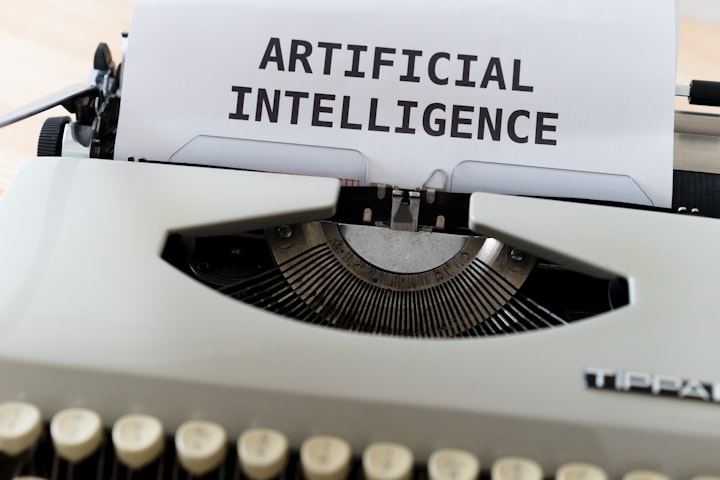Artificial Intelligence (AI) Applications in Everyday Life: Benefits and Disadvantages
Artificial Intelligence (AI) Applications in Everyday Life:

Artificial Intelligence (AI) Applications in Everyday Life: Benefits and Disadvantages
Introduction:
Artificial Intelligence (AI) has become a prominent and transformative technology in recent years, with its applications permeating various aspects of our daily lives. From voice assistants and recommendation systems to autonomous vehicles and healthcare diagnostics, AI has the potential to enhance efficiency, convenience, and decision-making. However, like any powerful technology, AI also presents certain challenges and disadvantages. This blog explores the applications of AI in everyday life, discussing its benefits as well as the potential drawbacks.
Part 1: AI Applications in Daily Life
1. Voice Assistants:
Voice assistants like Amazon's Alexa, Apple's Siri, and Google Assistant have become common features in households. They use AI algorithms to process and respond to voice commands, allowing users to perform tasks such as setting reminders, playing music, or controlling smart home devices. Voice assistants simplify daily routines and provide hands-free convenience.
2. Personalized Recommendations:
AI-powered recommendation systems are employed by online platforms such as Netflix, Amazon, and Spotify to analyze user preferences and behaviors. By collecting and analyzing vast amounts of data, AI algorithms provide personalized recommendations for movies, products, and music, enhancing user experiences and satisfaction.
3. Virtual Personal Assistants:
Virtual personal assistants like Google Now and Microsoft's Cortana help users manage their schedules, provide weather updates, and offer suggestions based on user preferences. These AI-driven assistants streamline daily tasks, improving productivity and time management.
4. Autonomous Vehicles:
AI plays a crucial role in the development of autonomous vehicles. Self-driving cars use AI algorithms, sensors, and machine learning techniques to perceive and respond to the surrounding environment, enhancing road safety and potentially reducing accidents caused by human error. The widespread adoption of autonomous vehicles could revolutionize transportation systems and provide more efficient and sustainable mobility solutions.
5. Healthcare Diagnostics:
AI has made significant advancements in the field of healthcare diagnostics. Machine learning algorithms can analyze medical data, including patient records and medical images, to assist in the diagnosis of diseases and identification of treatment options. AI-powered diagnostic tools have the potential to improve accuracy, reduce human error, and facilitate early detection of diseases.
6. Smart Home Automation:
AI-driven smart home systems integrate various devices and appliances, allowing users to control and automate their homes. From adjusting temperature and lighting to managing security systems, these AI applications provide convenience, energy efficiency, and improved home management.
Part 2: Benefits of AI in Everyday Life
1. Efficiency and Convenience:
AI applications streamline various tasks, saving time and effort. Voice assistants and virtual personal assistants automate routine activities, allowing users to focus on more important matters. Recommendation systems provide personalized suggestions, simplifying decision-making processes.
2. Enhanced User Experiences:
AI-driven technologies, such as personalized recommendations and virtual assistants, provide tailored experiences that cater to individual preferences. This leads to increased customer satisfaction and engagement.
3. Improved Safety:
Autonomous vehicles equipped with AI technologies have the potential to reduce accidents caused by human error, enhancing road safety. AI-powered security systems in homes provide added protection against potential threats.
4. Medical Advancements:
AI-driven healthcare diagnostics can aid in early disease detection, leading to timely interventions and improved patient outcomes. The analysis of vast amounts of medical data enables more accurate diagnoses and personalized treatment plans.
5. Automation and Productivity:
AI applications automate repetitive tasks and data analysis, allowing individuals and organizations to focus on higher-level tasks that require creativity and critical thinking. This improves productivity and enables the exploration of new opportunities.
Part 3: Disadvantages and Concerns of AI in Everyday Life
1. Job Displacement:
AI technologies have the potential to automate certain job functions, which may lead to job displacement and unemployment in some sectors. This poses challenges for individuals and communities that heavily rely on these
jobs.
2. Data Privacy and Security:
AI systems often rely on large amounts of personal data for analysis and decision-making. This raises concerns about data privacy and security. Unauthorized access or misuse of sensitive information can result in serious consequences.
3. Lack of Transparency and Accountability:
The complexity of AI algorithms makes it challenging to understand their decision-making processes. This lack of transparency can lead to concerns about accountability, especially in critical areas such as healthcare and autonomous vehicles.
4. Bias and Fairness:
AI algorithms are trained on historical data, which may contain biases and prejudices. If not carefully addressed, these biases can perpetuate discrimination and inequality, affecting decision-making processes in areas such as hiring, lending, and law enforcement.
5. Dependence on Technology:
Overreliance on AI applications may reduce human skills and capabilities, leading to a dependence on technology. This can result in challenges when technology fails or when human judgment and expertise are required.
Conclusion:
Artificial Intelligence (AI) has become an integral part of our daily lives, offering numerous benefits and conveniences. From voice assistants and personalized recommendations to autonomous vehicles and healthcare diagnostics, AI applications continue to shape various industries and improve efficiency and decision-making processes. However, it is crucial to address the potential disadvantages and challenges associated with AI, including job displacement, data privacy concerns, bias, and overreliance on technology. Striking a balance between harnessing the benefits of AI and addressing its drawbacks is essential to ensure its responsible and ethical integration into everyday life.






Comments
There are no comments for this story
Be the first to respond and start the conversation.